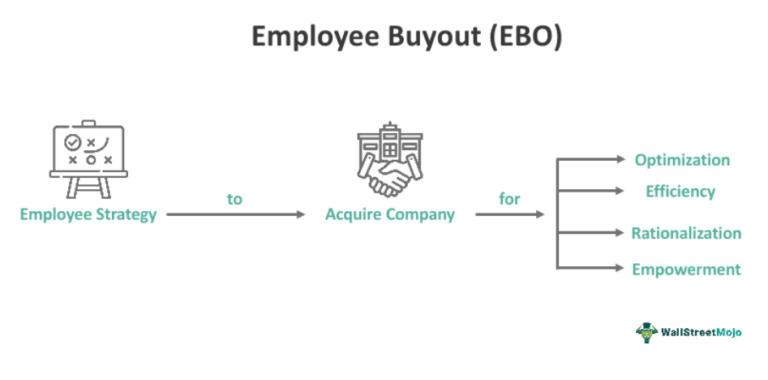
Audience
- Sentiment: Neutral
- Political Group: Moderate
- Age Group: 35-54
- Gender: Female
Overview
- CVS Health reported strong Q4 results with earnings of $1.19 per share and revenues of $97.71 billion.
- Despite growth, CVS’s insurance unit Aetna experienced a significant loss due to rising healthcare costs.
- New CEO David Joyner aims to reduce costs by $2 billion and improve profitability in the Medicare Advantage sector.
CVS Reports Strong Q4 Results Amid Rising Insurance Costs
In the world of business, especially when it comes to big companies like CVS Health, numbers and reports can sound pretty complicated. But today, we’re going to break down CVS’s recent fourth-quarter results in a way that’s easy to understand. So, let’s check out how this company is doing, what challenges it faces, and what the future might hold—all while keeping it interesting!
What’s CVS Health Anyway?
Before diving into the financials, let’s quickly talk about what CVS Health is. Most of us know CVS as a pharmacy where we can pick up our prescriptions or grab snacks after school. But it’s way more than that! CVS Health is a huge healthcare company that runs pharmacies, pharmacy benefit management services (which basically helps manage how much medications cost), and even has its own health insurance plan under the name Aetna.
Imagine that CVS is like a big umbrella covering various healthcare needs, from buying medicines to getting health insurance. This is why their financial performance is crucial for many people, especially those relying on their services for health and wellness.
What Happened in Q4?
In the latest report for the fourth quarter, CVS announced it earned $1.19 per share. To put that in perspective, if you imagine $1.19 as a slice of pizza, it means that for every share of the company people own, they can expect to receive $1.19 in profit. That’s a pretty solid number, and it actually beat expectations from analysts who study and predict how companies will perform.
CVS also made a whopping $97.71 billion in revenue—in simpler terms, that’s all the money they brought in from selling medications and insurance! This impressive revenue was largely driven by growth in their pharmacy and insurance businesses, showing that more people are using their services.
Now, you might think, “Wow, they’re doing great!” And in many ways, they are! But like in any story, there’s a twist. Alongside these successes, CVS’s insurance unit, Aetna, reported some struggles, particularly with rising medical costs leading to a significant operating loss of $439 million. That’s no small number! It indicates that while they’re making money in some areas, they’re facing challenges in others.
Rising Costs: A Two-Edged Sword
One of the main issues CVS faces is the rising cost of healthcare, especially in insurance. With an increasing number of people signing up for Medicare Advantage (a type of insurance for seniors), many of them were coming in for checkups and treatments they’d delayed during the pandemic. This sudden influx created higher medical costs for Aetna. This situation is somewhat like if a new sports team suddenly had a lot of injured players; the costs to get everyone back in shape can add up quickly!
So, with Aetna losing money, it makes the overall picture a bit mixed. It’s like getting a high score in a video game but losing your favorite weapon in the process. Everything isn’t as bright as it seems.
New Leadership: A Game Changer?
Then, we have David Joyner, CVS’s new CEO, who stepped into the role just a few months ago in October. Leading a large company is no easy feat, and taking the helm during challenging times adds even more pressure.
Joyner has a plan to turn things around, which includes reducing costs by $2 billion over the next few years. Think of it like a student who realizes they’re spending too much money on snacks and decides to cut down on buying chips and candy. CVS needs to manage its spending properly to ensure it can stay profitable and handle rising medical costs effectively.
Speaking of outlooks, CVS is also projecting its earnings for the year 2025 to land between $5.75 to $6 per share. This projection aligns with what Wall Street (the world of finance and business) expects. However, unlike in the past, they didn’t provide a revenue forecast, which can leave investors a little anxious.
Stock Price Surge: A Silver Lining
Despite some of the challenges, CVS’s stock price jumped 15% following the earnings announcement. This is a good sign because it suggests that investors believe in the company’s ability to bounce back and improve its performance. When stock prices go up, it’s usually a signal that people think the company is doing something right—at least for now.
In this case, the boost might be tied to confidence in the new leadership and the potential gains to come from ongoing services, including the surge in pharmacy use as people manage their health better. It’s similar to a team that has a rough start but shows a good performance in the second half. Fans often remain hopeful!
Looking Ahead: What’s in Store?
David Joyner has outlined his focus on improving the Medicare Advantage sector’s profit margins, which means he’s looking for ways to ensure that Aetna can make money from the policies they provide. During tough months, it’s easy to forget there’s always room for growth; similar to how grades can fluctuate throughout the year.
A critical aspect of Joyner’s strategy involves enhancing star ratings for Medicare Advantage. These ratings can impact how much money Aetna receives from the government. If Aetna scores well, it can translate to higher revenue. It’s kind of like getting a good grade that helps your overall GPA!
However, hope also comes with challenges. CVS has seen a drop in the number of pharmacy claims processed after losing a major client. Losing a big client can feel like losing your main ride to school. You still have options, but it could take extra effort to get to class (i.e., staying profitable).
A Final Thought
As CVS Health moves forward, it faces a mixed bag of opportunities and challenges. The company is not faltering; instead, it’s trying to adapt and improve, much like a student learns from setbacks to achieve their goals. The upcoming years will be critical in determining whether CVS can successfully implement its plans to improve profitability in its insurance and pharmacy segments.
In wrapping up, what do you think about CVS Health’s future? Do you believe they’ll overcome their hurdles, or do you think the challenges will continue to hold them back? Feel free to share your opinions or any questions you may have in the comments below!





